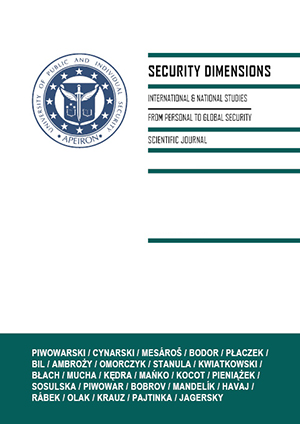Hybrid Tactics as Part of Russian Foreign Policy and Attempts to Influence Political Discourse in the EU
Hybrid Tactics as Part of Russian Foreign Policy and Attempts to Influence Political Discourse in the EU
Author(s): Ivan JagerskySubject(s): Security and defense
Published by: Wyższa Szkoła Bezpieczeństwa Publicznego i Indywidualnego “Apeiron” w Krakowie
Keywords: hybrid warfare;information operations;Russian foreign policy;propaganda;
Summary/Abstract: Russian hybrid approach is based on their understanding of threats; Russians feel themselves as victims of Western policies, sanctions and information policy. According to Russian military doctrine and theory, information warfare is conducted continuously in peacetime and wartime alike. The Russian elite consider comprehensive hybrid approach as one of the most important elements in foreign affairs. It uses a combination of tools, such as wide-ranging political and diplomatic commitment, the leverage of the energy, economic retaliation, strengthening of the military capabilities, development assistance, propaganda, intelligence and cyber activities. The priorities of Russian information operations are promoting special bilateral relations with EU member states while exploiting the different interests and contradictions within EU. The goal of mediacampaigns and propaganda is to undermine dominant Western media sources and narratives. As part of information operations Russia has begun to cooperate with and support radical and anti-establishment groups in the EU. The effectiveness of Russian information policy abroad comes at high costs but it is still limited in its outcomes. Russian policy in the EU will be increasingly directed towards polarization of different institutions, countries, parties and particular interest groups
Journal: Security Dimensions. International and National Studies
- Issue Year: 2016
- Issue No: 20
- Page Range: 195-206
- Page Count: 12
- Language: English

